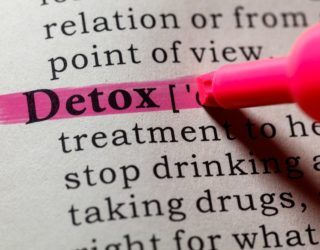Millions of people in the U.S. struggle with drug addiction and alcohol use disorder. When the human body becomes dependent on drugs or alcohol, the individual has to keep taking drugs or drinking to avoid painful and sometimes dangerous withdrawal symptoms. Trying to detox and withdrawal from an addictive substance cold turkey and without medical supervision can increase the risk of seizures, coma, relapse, and overdose.
Dangers and Risks of Cold Turkey Detox


Cold-turkey Detox
What are the Dangers and Risks of Cold-turkey Detox?
It’s imperative that people who struggle with addiction and want to quit, seek out help from a licensed rehab center. Therapists and doctors can give patients medications to reduce the severity of withdrawal symptoms, and keep patients safe from potentially fatal side effects. An inpatient or outpatient rehab center can also create aftercare maintenance plans for patients, and give them the resources they need to avoid a relapse and recurrence of drug addiction.
What happens during detox from drugs or alcohol?
Cold-turkey detox is when someone who is addicted to drugs or alcohol suddenly quits with no viable, safe method of tapering off from a drug. Cold-turkey detox is incredibly harsh and can lead to severe and intense withdrawal symptoms that can last for a long time. Also, cold-turkey detox has a failure rate of up to 95%, meaning only 5% manage to avoid relapse. 60% of people who attend medical detox and rehab avoid relapse.
The first step in recovery from drug addiction is to stop the body and the brain’s physical dependence on the substance. It’s essential to understand the physiological mechanisms behind the disease of addiction to fully appreciate just how dangerous cold-turkey detox can be.
When a person takes a drug or becomes addicted to alcohol, there are many different neurochemical and biological responses the person goes through when they get high or drunk. Addictive substances can completely rewire the brain’s risk-reward pathways. The brain and the body quickly become accustomed to having the drug in the person’s system. When a person stops taking the addictive substance or tries to cut back, the brain and the body respond with withdrawal symptoms. Depending on what substance a person is addicted to, and how long and how severe an addiction they’ve had will influence the withdrawal timeline, and symptoms and severity.
When people become addicted to drugs and attempt to quit on their own, they are often optimistic and determined to get their life back on track. Unfortunately, their brain and body are working against them during the withdrawal phase. Painful and distressing symptoms can quickly compel a person to take only a small amount of the substance to find relief. Unfortunately, this continues the cycle of addiction. But medical intervention can help addicts overcome the withdrawal process and reach sobriety.
By detoxing in a medical facility, patients can have access to lifesaving medications that can help them safely taper or wean off a drug or alcohol. This can not only prevent dangerous withdrawal symptoms from occurring, but can also increase the chances of withdrawal being successful, and preventing people from relapsing.
What types of symptoms can a person encounter during the withdrawal phase of addiction?
The withdrawal process is the body’s way of becoming accustomed to functioning without a substance. It is also when the body begins to rid itself of toxins and poisons from drug or alcohol abuse. Although the high or euphoria from a drug may not last for very long, the substance can linger in the body for a long time after cessation.
Some of the most common symptoms of drug or alcohol detox include the following:
- Nausea, vomiting, diarrhea, and stomach cramps
- Headaches
- Muscle aches and pains
- Flu-like feelings
- Malaise and fatigue
- Trouble concentrating
- Irritability and anxiety
- Depression
- Delusions or hallucinations
- Trouble sleeping, insomnia or hypersomnia
- Intense cravings for drugs or alcohol
- Sleep disturbances and nightmares
- Panic attacks
- Seizures, coma
- Death
People who are addicted to alcohol and try to quit cold-turkey are especially vulnerable to experience dangerous symptoms. People who try to using alcohol can experience a condition called delirium tremens, which is a type of seizure. The seizure can result in brain damage, oxygen deprivation, and death. For those struggling with severe, long-term alcohol addiction, they need to go through detox under the care and supervision of trained medical professionals.
For those who struggle with heroin or opiate-derivative addiction, cold-turkey detox can be incredibly dangerous. Opiates and heroin completely rewire the brain’s essential neurotransmitters. Depression and intense, long-lasting cravings for these drugs are common once a person attempts to quit. Relapsing on heroin or other opiates after cessation dramatically increases a person’s risk of deadly overdose.
The body’s tolerance for these types of drugs quickly increases and just as rapidly decreases after cessation. A recovering addict can relapse by taking any amount of opiates or heroin that they think they have a tolerance for, only to find out that their tolerance has been drastically reduced. Almost 68% of all drug overdose deaths in 2017 were attributed to opiate use.
People who are recovering from an addiction to cocaine can experience hard-to-treat major clinical depression after quitting drugs. For these individuals, attempting to quit without medical supervision and guidance can cause significant impairment in their day to day functioning if they suffer from untreated depression. They are at-risk of suicide and self-harm, and also at risk of relapsing to find relief from depression symptoms. Up to 20% of people with depression or anxiety also have a substance use disorder.
What are the other risks associated with cold-turkey detox?
While it’s true that cold-turkey detox is associated with severe and long-lasting withdrawal symptoms, cold-turkey detox can also have other, less immediate risks associated with the process.
When an individual enters rehab and detox for drug addiction, they are given holistic treatment that is designed to get to the root cause of their addiction issue and address it. Many people who enter rehab are using drugs or alcohol to cope with an untreated mental health condition. It is estimated that almost half of rehab patients suffer from a comorbid mental health condition.
People may also turn to drugs or alcohol to address emotional pain and distress related to a traumatic event or other injustice they’ve suffered. Entering rehab gives patients the chance to treat these issues and heal from them with guidance from trained, experienced counselors and other mental health professionals. Patients can also uncover what triggered the drug or alcohol abuse, and learn healthy coping mechanisms to either avoid these triggers or address them in a positive way that doesn’t involve using drugs or alcohol.
When these root causes are addressed and treated, patients are also given tailored and customized maintenance plans. These are plans that are put in place to help prevent a relapse. If someone decides to quit cold-turkey without medical help, they do not get these benefits, and their risk of relapsing after cessation is increased.
What is a better way to detox from drugs or alcohol?
Detoxing from drugs or alcohol under the care and supervision of a trained medical team is a much better option than going cold-turkey.
In a medical detox center, patients have access to experienced medical professionals and therapists 24/7. A team of medical professionals also makes it a priority to tailor a treatment plan to each patient’s specific needs. They can give the patient medications to alleviate withdrawal symptoms. And they can also create a customized tapering-off schedule to lessen withdrawal severity.
Also, a licensed detox center and rehab facility can give patient’s replacement medications. For those who are attempting to quit heroin or other opiate derivatives, licensed rehab facilities can provide patients with medications such as suboxone or Buprenorphine/Naltrexone. These life-saving drugs can block the effects of opiates, and also lessen a person’s cravings for the drugs. Drug counselors can also give patients a list of resources where they can go to obtain these medications after they achieve sobriety and leave the facility.
Withdrawing from drugs and alcohol in rehab or medical detox facility also keeps patients away from easily accessing drugs or alcohol. They are kept away from harmful outside influences. The only people they will be exposed to in rehab are licensed healthcare professionals who are committed to seeing them succeed, and other recovering addicts who are also determined to overcome addiction. A positive, drug-free environment significantly decreases the risk of a person relapsing.
How can someone get help for drug or alcohol addiction?
It’s crucial that people get help from drug addiction sooner rather than later. The earlier in the addiction process that medical professionals can intervene, the easier it will be for the person to quit and achieve lifelong sobriety on the first try. Many rehab facilities offer financial aid and flexible payment plans to those who qualify. It’s also possible to find a low-cost, available facility on The Salvation Army website.
For those struggling with addiction and their loved ones, it’s never too late to get help. Contact a licensed rehab and detox center today to explore effective addiction treatment options.





